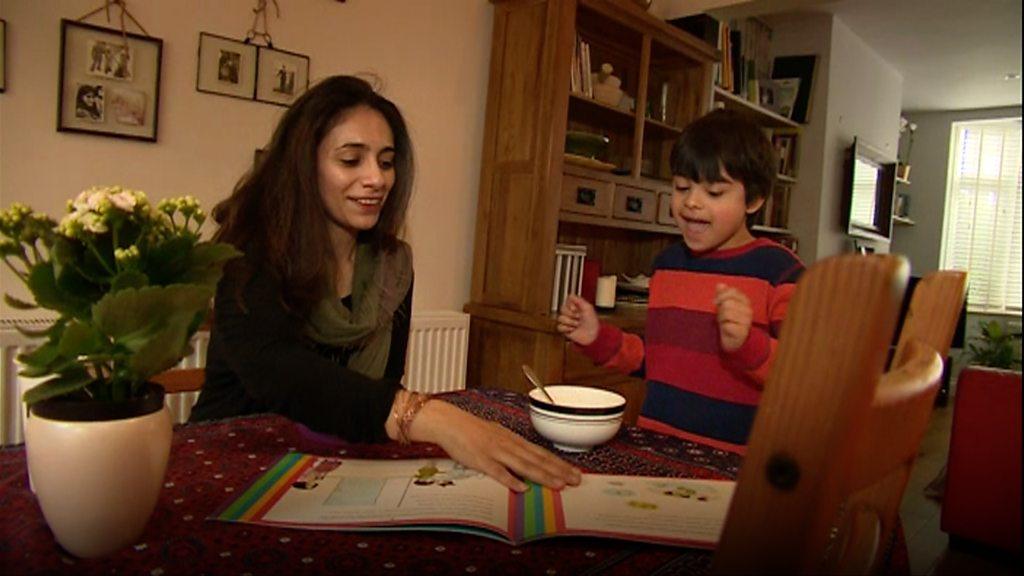Cardiff University Down's syndrome vision research prize
- Published
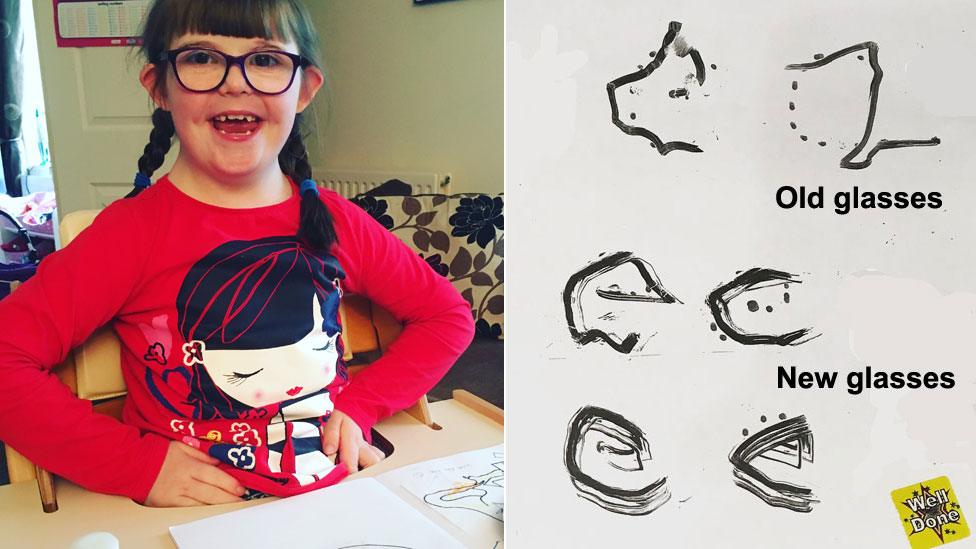
Evie - and how her writing improved with her new glasses
Evie is eight years old and has Down's syndrome. She was struggling to write letters.
But pioneering research by Cardiff University led to her being prescribed with bifocal lenses - and soon she could write her own name for the first time.
The work has now been awarded a Queen's Anniversary Prize.
Typically, 6% of children Evie's age will be long or short-sighted. But for children with Down's that proportion shoots up to 60%.
Until a dedicated unit was established at the university's School of Optometry 25 years ago, external, very little was known about the effects.
But since then researchers have led the world in developing new ways of helping children see more clearly.
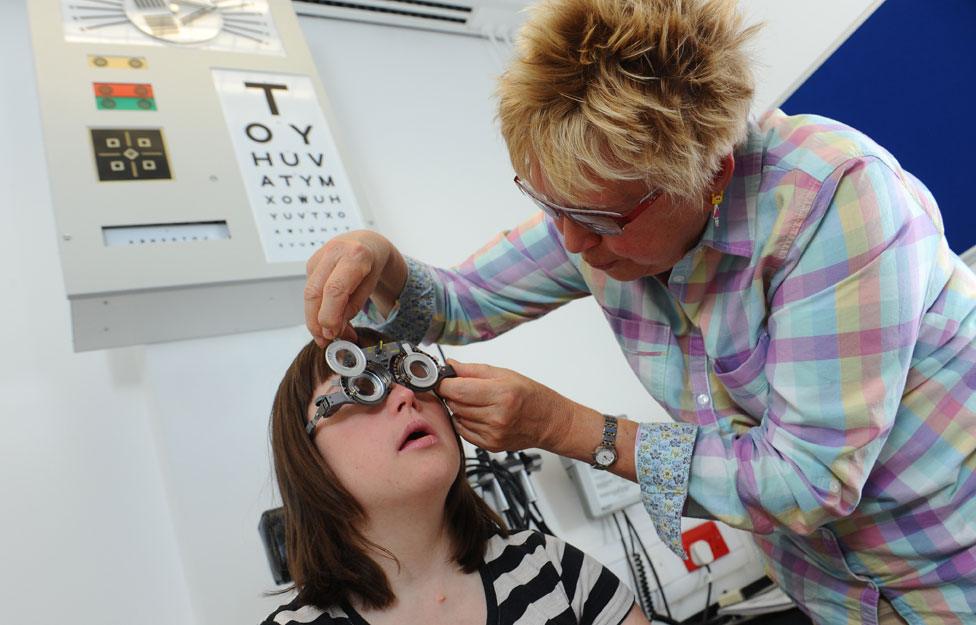
Dr Maggie Woodhouse was awarded the OBE in 2014 to recognise her work
Dr Maggie Woodhouse said: "A major problem children have with Down's syndrome is difficulty focusing close up.
"Even when sight is corrected with spectacles, many of them are out of focus when they're looking at their schoolwork.
"Because they have a learning disability, it's not easy for parents and teachers to spot when a difficulty they're having is because they're not seeing well as opposed to their learning disability.
"But if you can get them seeing clearly they can learn a lot more easily than originally thought."
Dr Woodhouse said finding the Down's syndrome focusing issue had been "astonishing" and the biggest achievement for researchers was discovering the difference that bi-focals could make.
She said Evie was helped after her mother contacted the unit and was sent details of the research and this led to new bi-focals being prescribed.
"She struggled to draw the letters with her old glasses but there was enormous improvement with the new ones.
"Three weeks later she wrote her own name spontaneously for the first time, it was quite moving."

James Harris with his mother Kate at the family home in Barry
HOW JAMES IS HELPED TO WORK AND PLAY
James Harris, 12, likes to play video games at his home in Barry, Vale of Glamorgan, but he would not be able to without his specially-designed glasses.
He first saw the experts at Cardiff University when he was just two years old and was found to be very long-sighted.
James goes to a mainstream school. The unit's research has led to bold and enlarged print being provided on materials to help him access books and school work. His teachers also now know that children with Down's have difficulty reading lines - so these are made bolder too.
This visual approach also sees eye examinations adapted for him.
Mother Kate said: "At the unit they're very aware of the specific learning profile of individuals with Down's syndrome and how visually aware they are and then in contrast to that what poor auditory memory they have".
"So lots of talking to James and lots of instructions. A normal clinic environment just wasn't going to work and for some children it can make it look like they're being very badly behaved".

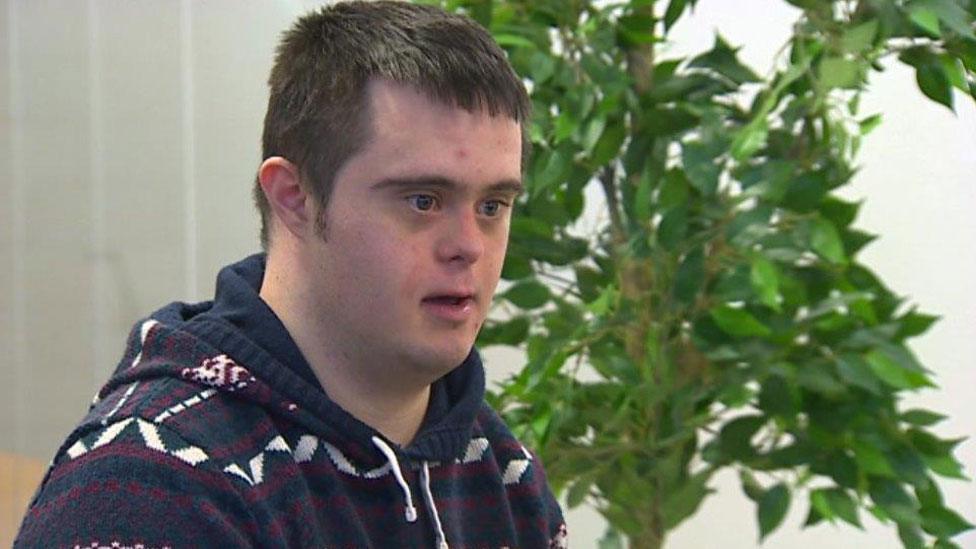
Gareth John only developed eye problems in his 20s
This Queen's Anniversary Prize - one of the most prestigious prizes in academia - is the first to be awarded for optometry.
It is a recognition of the work accomplished so far but the Cardiff unit still has more it wants to do - including helping one of the first children it tested.
Dr Woodhouse first saw Gareth John when he was six months old; he is now 25.
His eyesight has been fine for most of his life until recently.
Gareth has Keratoconus, a condition affecting the corneas which is more prevalent in people with Down's syndrome.
The centre is now looking to detect and screen for the disease, work according to his mother Sian, from Dinas Powys, that needs more backing from the NHS.
"He couldn't see aeroplanes flying overhead, if he goes into a room he can see people but not who they are," she said.
'Proud'
"There is not funding to help people in Wales - if we lived in England it would be fine. His eyesight has gradually deteriorated over the last three and a half years and we went privately in the end.
"Maggie is finding out all about these things but she's not getting the financial backing to do something about it."
The last word is with Gareth.
"I do feel better with my eyes - I'm more back to my normal self again. Maggie is a good person to work with - she's a loving, kind, lady. I feel proud.
- Published21 March 2017
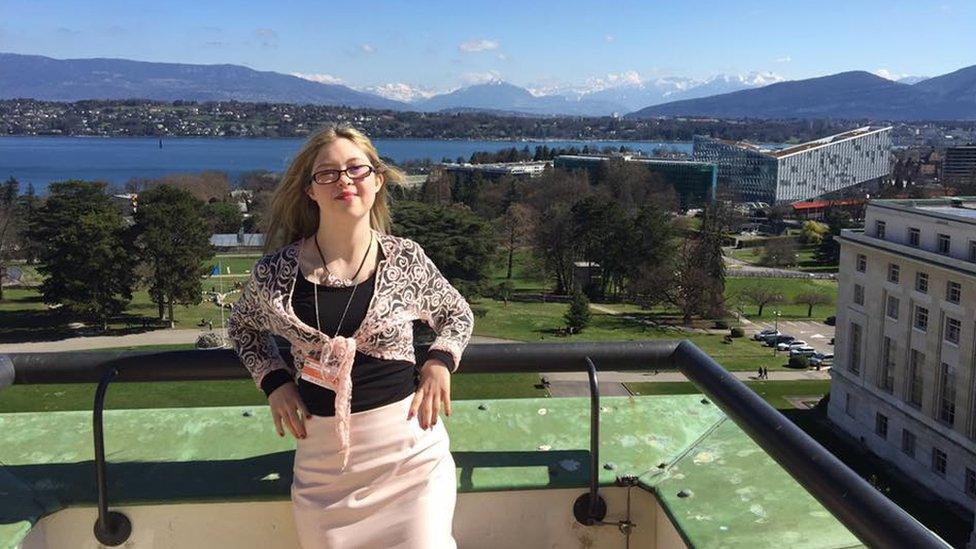
- Published27 November 2017
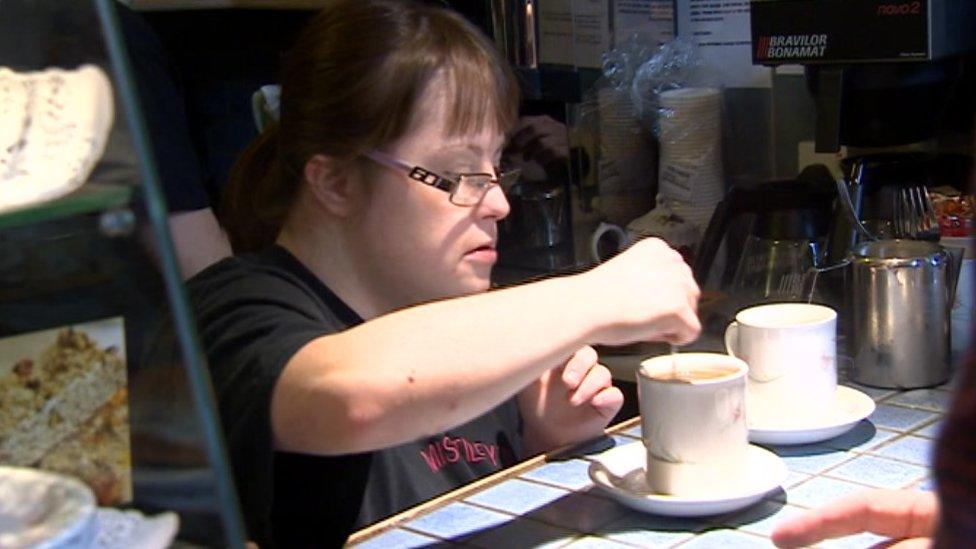
- Published30 July 2017
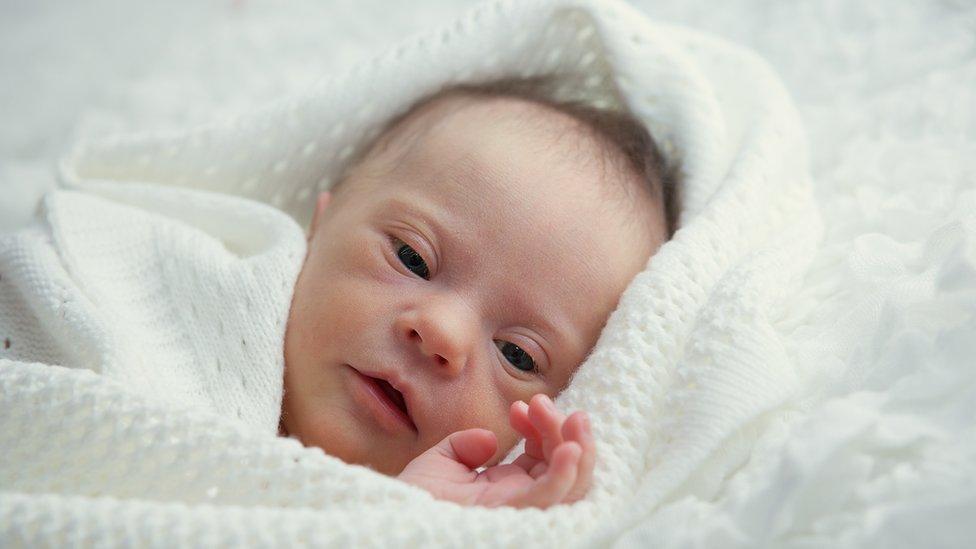
- Published14 February 2017
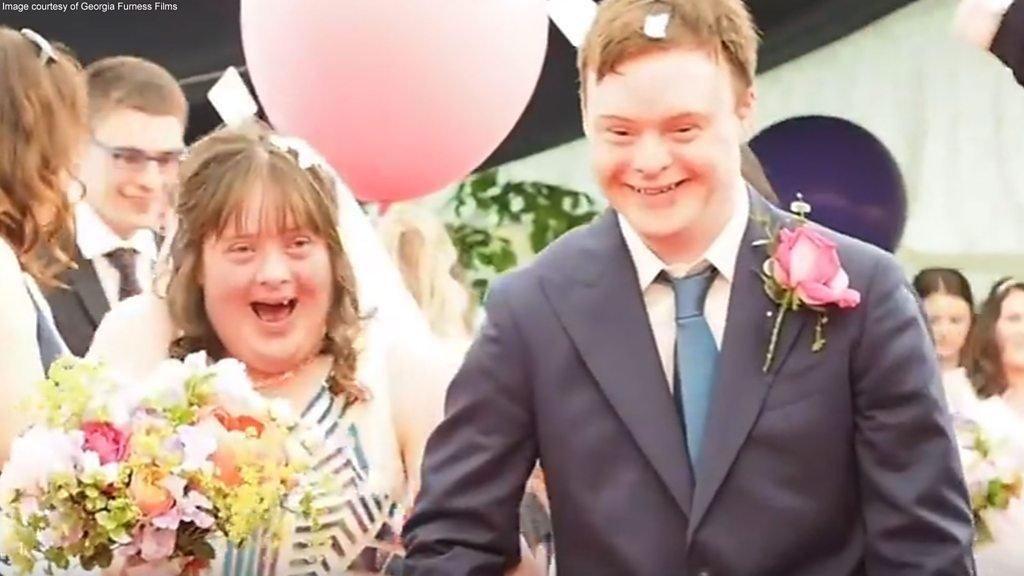
- Published10 May 2017
